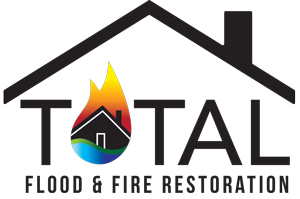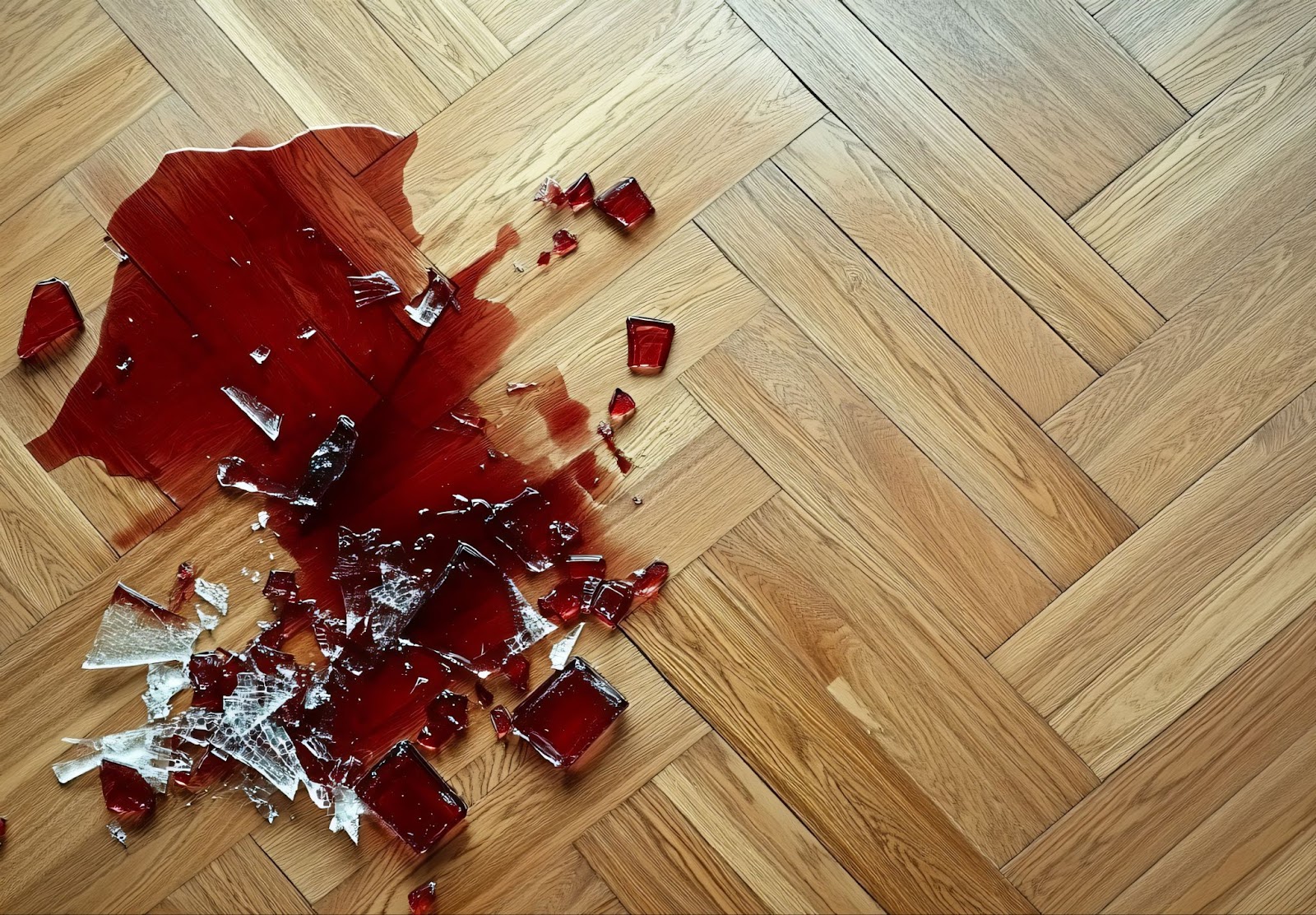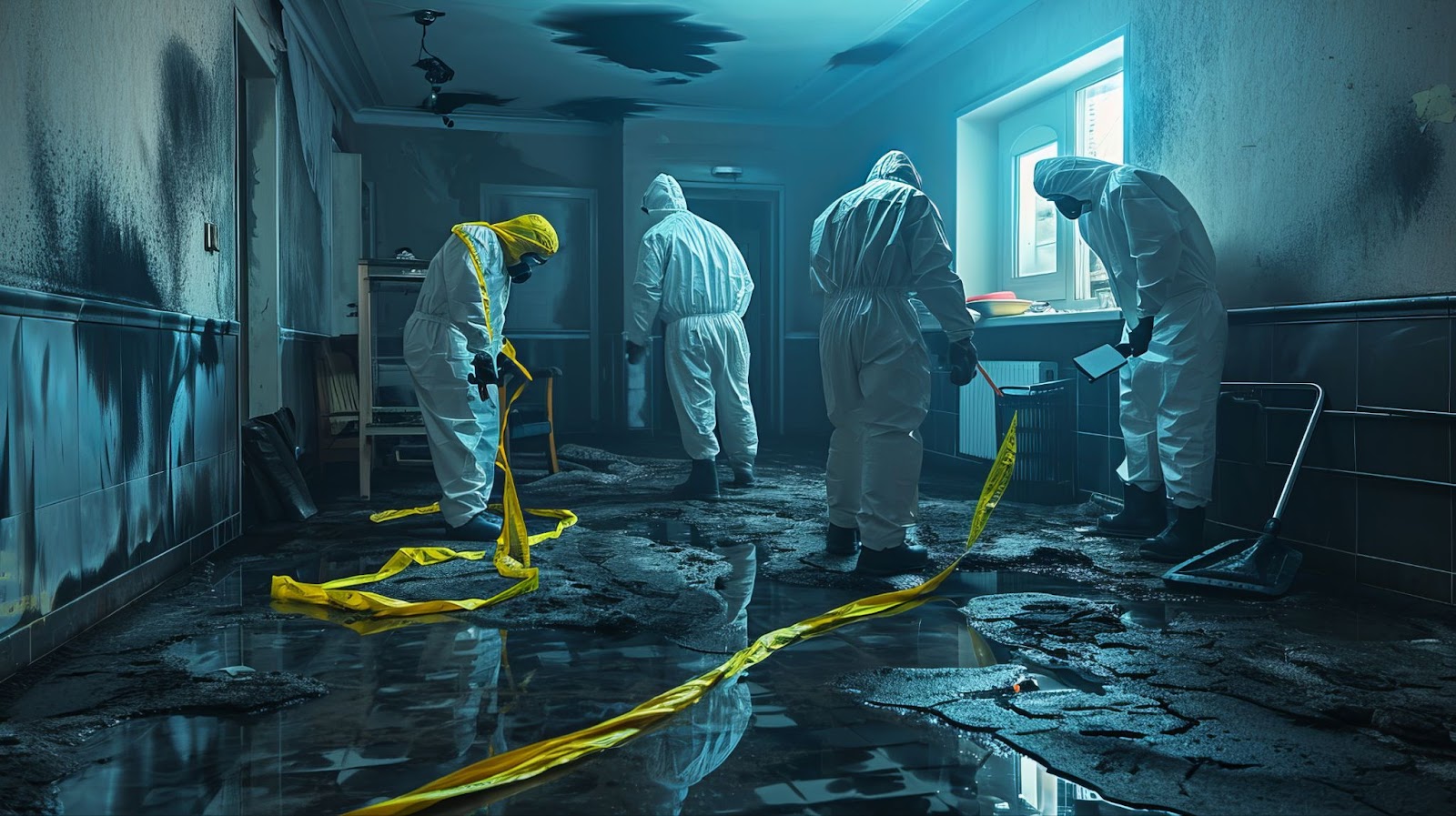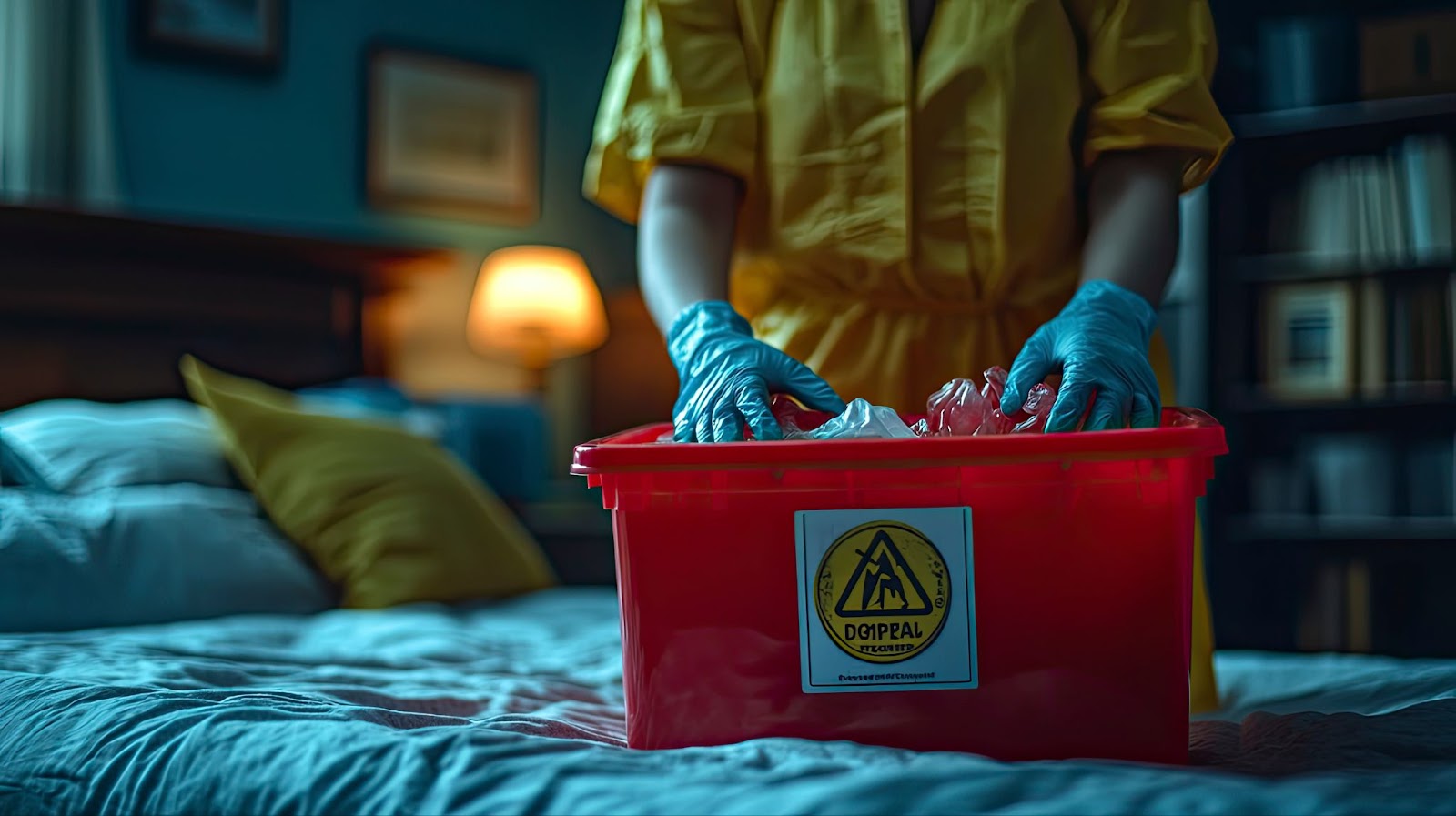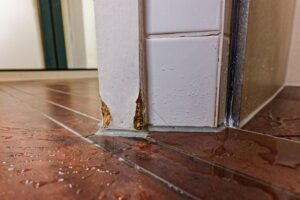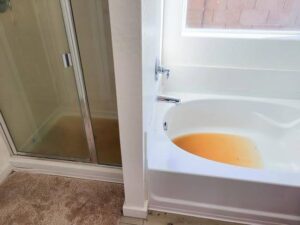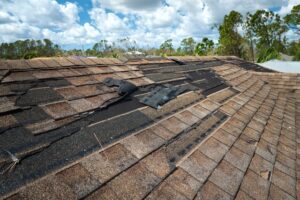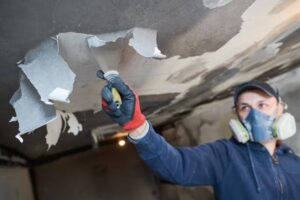Crime scenes pose serious health risks and require professional crime scene cleanup to restore safety. Blood, bodily fluids, and biohazards carry dangerous pathogens that spread infection if not handled correctly. Cleaning these scenes requires specialized training, industrial-grade disinfectants, and strict adherence to health and safety regulations.
Several situations demand expert crime scene cleanup. Homicides, suicides, and unattended deaths leave behind biological contaminants that seep into flooring, walls, and furniture. Trauma scenes and violent crimes often involve hazardous materials that household cleaners can’t remove effectively. Meth labs and drug-related incidents also require professional decontamination to eliminate harmful residues.
This blog helps homeowners, property managers, and business owners understand the crime scene cleanup process. Knowing the risks, legal requirements, and professional remediation steps ensures a thorough and safe restoration.
Whether handling a personal loss or managing a property, understanding what to expect will help you confidently navigate this challenging situation.
Table of Contents
ToggleUnderstanding the risks of crime scene contamination
Crime scenes contain dangerous biohazards that require professional cleanup to ensure safety. Blood, bodily fluids, and tissue remnants carry pathogens like HIV, hepatitis B and C, and harmful bacteria. Without proper decontamination, these contaminants remain, increasing the risk of infection and long-term exposure.
Cleaning a crime scene without professional help adds unnecessary emotional distress. Family members, property owners, or employees may struggle with trauma while attempting to clean up after a violent event. Exposure to such scenes can trigger anxiety, PTSD, and other psychological effects, making professional intervention essential.
State and federal laws regulate crime scene cleanup to protect public health. Blood and bodily fluids qualify as biohazardous waste, requiring licensed professionals to handle and dispose of them properly.
OSHA mandates the use of personal protective equipment (PPE), medical-grade disinfectants, and strict containment measures. Failing to follow these regulations may lead to legal consequences, lingering contamination, and serious health hazards.
Professional crime scene cleaners remove biohazards safely, follow strict regulations, and restore the space efficiently. Hiring experts protects your health, prevents cross-contamination, and provides much-needed emotional relief during a difficult time.
Steps to take before cleanup begins
Secure the area and follow law enforcement instructions to ensure a safe and legal cleanup. Authorities must complete their investigation before anyone begins cleaning. Avoid disturbing evidence, and wait for law enforcement to release the scene. If you manage the property, comply with police instructions to prevent contamination or legal issues.
Avoid direct contact with blood, bodily fluids, or hazardous materials. Biohazards contain infectious diseases that pose serious health risks. Even dried blood carries dangerous pathogens. Without proper protective gear and disinfectants, exposure increases the risk of infection.
Do not attempt to clean or move anything — disturbing biohazards spreads contamination.
Call a professional crime scene cleanup service as soon as authorities clear the scene. Cleanup specialists use hospital-grade disinfectants, industrial equipment, and strict biohazard disposal methods to restore safety. They eliminate bloodborne pathogens, remove odors, and decontaminate affected areas.
Act quickly and rely on trained experts to prevent contamination, protect public health, and restore the property efficiently.
The crime scene cleanup process
Crime scene cleanup requires a detailed and structured approach to remove biohazards and restore safety. Professionals follow strict protocols to eliminate contamination and ensure the space is safe for use.
Assessing hazards and contamination
Cleanup teams inspect the scene to identify contaminated areas and assess the extent of biohazards. They check for blood, bodily fluids, and tissue remnants on surfaces, flooring, and porous materials. This evaluation helps them develop a targeted cleanup plan.
Containing and removing biohazards
Technicians set up containment zones to prevent cross-contamination. They wear personal protective equipment (PPE) and follow OSHA and EPA regulations to handle and dispose of biohazardous waste. They remove blood-soaked materials, contaminated furniture, and affected flooring to eliminate health risks.
Cleaning and disinfecting all surfaces
Specialists apply industrial-strength, EPA-approved disinfectants to kill bacteria, viruses, and pathogens. They clean surfaces multiple times and use steam cleaners or fogging machines to reach hidden contaminants. Their thorough approach ensures no biological traces remain.
Eliminating odors and purifying air
Decomposing biological matter leaves strong odors that regular cleaning cannot remove. Restoration teams use ozone generators, hydroxyl machines, and activated carbon filters to eliminate airborne contaminants. These treatments restore indoor air quality and remove persistent odors.
Conducting a final safety inspection
Before completing the job, professionals test the area to confirm full decontamination. They use ATP testing and other detection methods to ensure the space meets health and safety standards. Once cleared, the property is safe for reoccupation.
Crime scene cleanup restores your property and brings peace of mind. By using advanced cleaning methods and adhering to strict safety protocols, professionals ensure the space is free of biohazards and safe for future use.
Tools and equipment used in crime scene cleanup
Crime scene cleanup teams use specialized tools and equipment to remove biohazards and restore safety. They rely on industrial-grade disinfectants, protective gear, and advanced filtration systems to ensure thorough decontamination.
Wear personal protective equipment (PPE)
Cleanup technicians protect themselves by wearing gloves, hazmat suits, masks, and face shields. They prevent direct exposure to bloodborne pathogens, airborne contaminants, and hazardous materials.
Use industrial-strength disinfectants
Professionals apply hospital-grade, EPA-approved disinfectants to kill bacteria and viruses. They use fogging machines and electrostatic sprayers to coat surfaces evenly, eliminating pathogens and preventing disease spread.
Filter airborne contaminants
HEPA-filtered vacuums remove fine particles from carpets, upholstery, and air ducts. Air scrubbers purify the air, capturing mold spores, bacteria, and foul odors to restore indoor air quality.
Dispose of biohazardous waste properly
Cleanup teams collect contaminated materials in biohazard bags, sharps containers, and sealed disposal bins. They follow strict waste management protocols to transport and dispose of hazardous waste at certified facilities.
By using the right equipment and following strict decontamination procedures, professionals ensure the crime scene is safe, clean, and free of health risks.
Legal and insurance considerations
Crime scene cleanup requires strict compliance with legal regulations and insurance policies. Understanding liability, coverage options, and the claims process helps property owners manage cleanup costs and restore their space efficiently.
Follow health and safety regulations
Authorities enforce strict guidelines for biohazard cleanup to protect public health. Property owners must ensure proper decontamination according to OSHA, EPA, and local regulations. Ignoring these requirements can lead to legal consequences, fines, or health risks.
Verify insurance coverage for crime scene cleanup
Homeowners’ and business insurance policies often include biohazard cleanup under property damage or liability coverage. Review the policy to confirm coverage, exclusions, and deductible requirements. Contact the insurance provider immediately to initiate the claims process.
Work with insurance adjusters to expedite claims
Provide insurance adjusters with detailed documentation, including photos, reports, and cleanup estimates. A professional crime scene cleanup company can assist with assessments and paperwork, ensuring accurate claims and fair reimbursements. Maintaining clear communication with the adjuster prevents delays and secures proper compensation.
Handling legal and insurance matters promptly helps property owners meet regulatory requirements, reduce financial burdens, and restore their property safely.
Preventing future issues and supporting emotional recovery
Strengthening security measures and prioritizing emotional well-being help property owners move forward after a traumatic event. Addressing both physical safety and mental health creates a stable environment for recovery.
Enhance home or business security
Upgrading security measures can help prevent future incidents. Install high-quality locks, motion-sensor lighting, and surveillance cameras to deter criminal activity.
Smart security systems with remote monitoring provide real-time alerts and increase overall safety. If necessary, hire a security consultant to assess vulnerabilities and recommend improvements tailored to your property.
Seek trauma support and counseling
Experiencing a crime scene, whether at home or in a business, can leave lasting emotional effects. Accessing professional counseling or trauma support groups can help individuals and families process grief, stress, and anxiety. Local crisis centers, victim assistance programs, and mental health professionals offer valuable resources to aid in recovery.
Restore a sense of normalcy
Reclaiming a safe and comfortable environment helps restore emotional balance. After professional cleanup, consider repainting, redecorating, or rearranging furniture to create a fresh atmosphere.
Engage in routines that provide comfort, such as family gatherings, meditation, or community involvement. Focusing on healing and taking proactive steps to enhance security can help rebuild confidence and peace of mind.
Choosing a reliable crime scene cleanup company
Selecting the right crime scene cleanup company ensures thorough decontamination, compliance with safety regulations, and a smooth restoration process. Work with professionals who have the right credentials, strong customer feedback, and reliable service guarantees.
Verify certifications, licensing, and experience
Check that the company holds OSHA, EPA, and IICRC certifications, proving their expertise in biohazard cleanup. Confirm they have the proper licensing to operate in your area and experience handling crime scenes, trauma incidents, and unattended deaths.
Read reviews and confirm customer testimonials
Research online reviews to assess the company’s reliability, professionalism, and discretion. Look for testimonials that highlight their thoroughness, respect for sensitive situations, and ability to restore properties efficiently.
Ask about emergency response times and service guarantees
Choose a company that offers 24/7 emergency services and responds quickly to biohazard situations. Ask how soon they can arrive, how long the cleanup will take, and what guarantees they provide for their work.
Trust Total Flood and Fire Restoration for expert crime scene cleanup
Total Flood and Fire Restoration specializes in biohazard cleanup, using industry-leading techniques, advanced equipment, and EPA-approved disinfectants to eliminate all traces of contamination. Our certified team works quickly and discreetly, handling each case with professionalism and care.
If you need expert crime scene cleanup, trust us to restore safety and peace of mind. Contact Total Flood and Fire Restoration today for 24/7 emergency response and reliable service.
